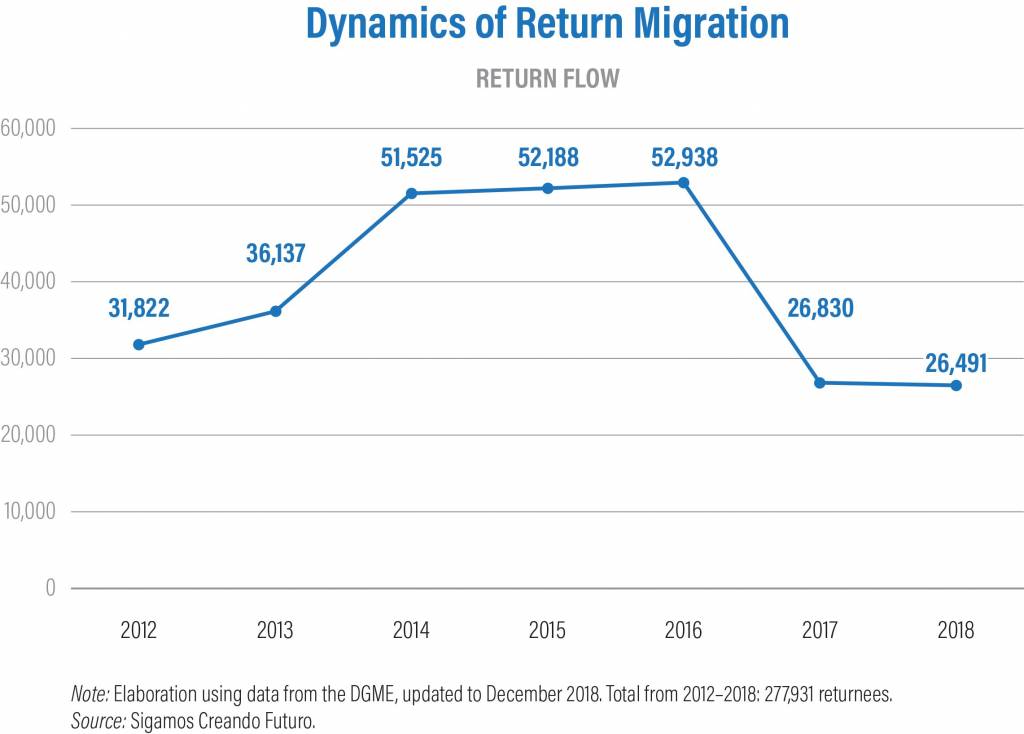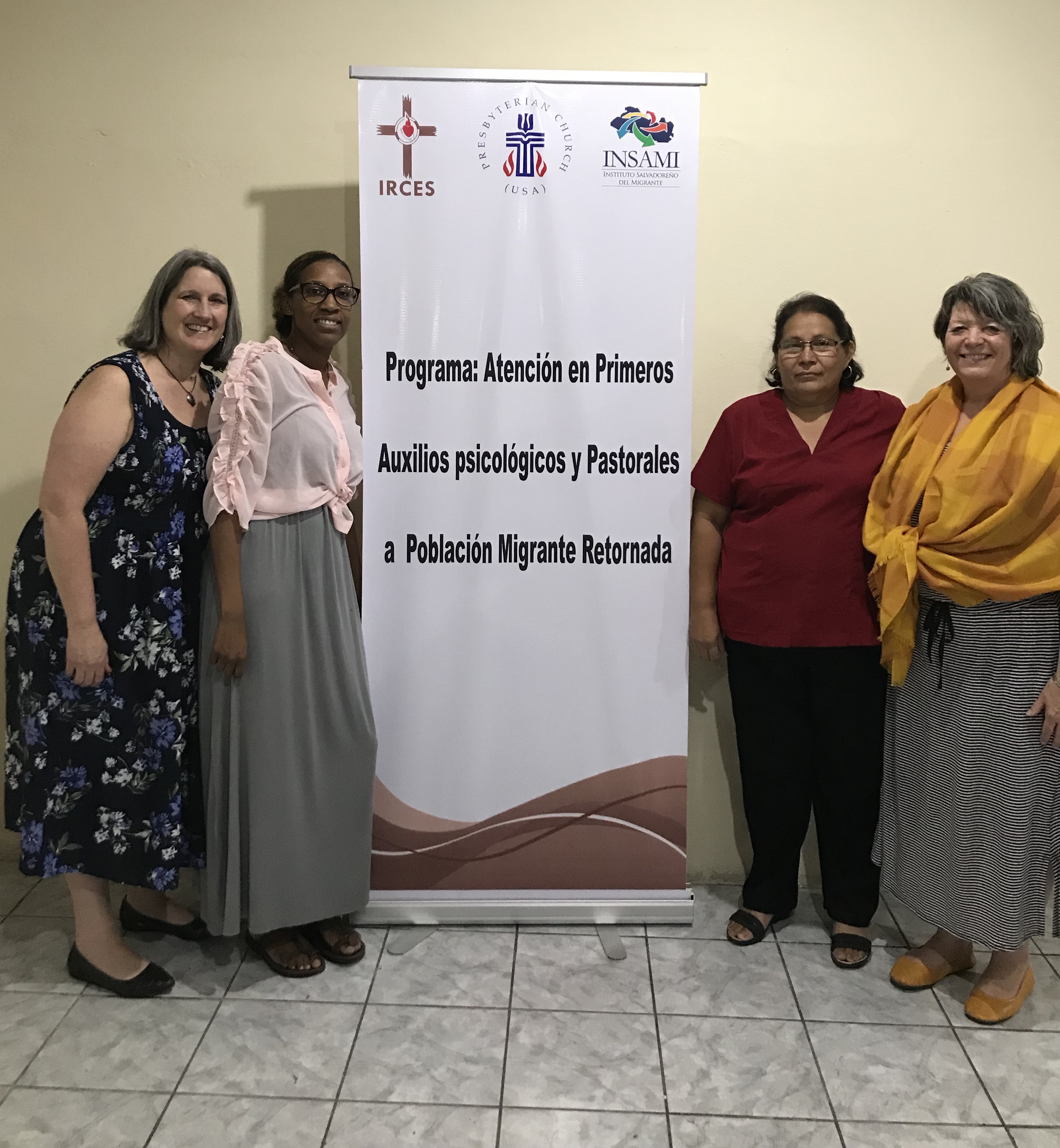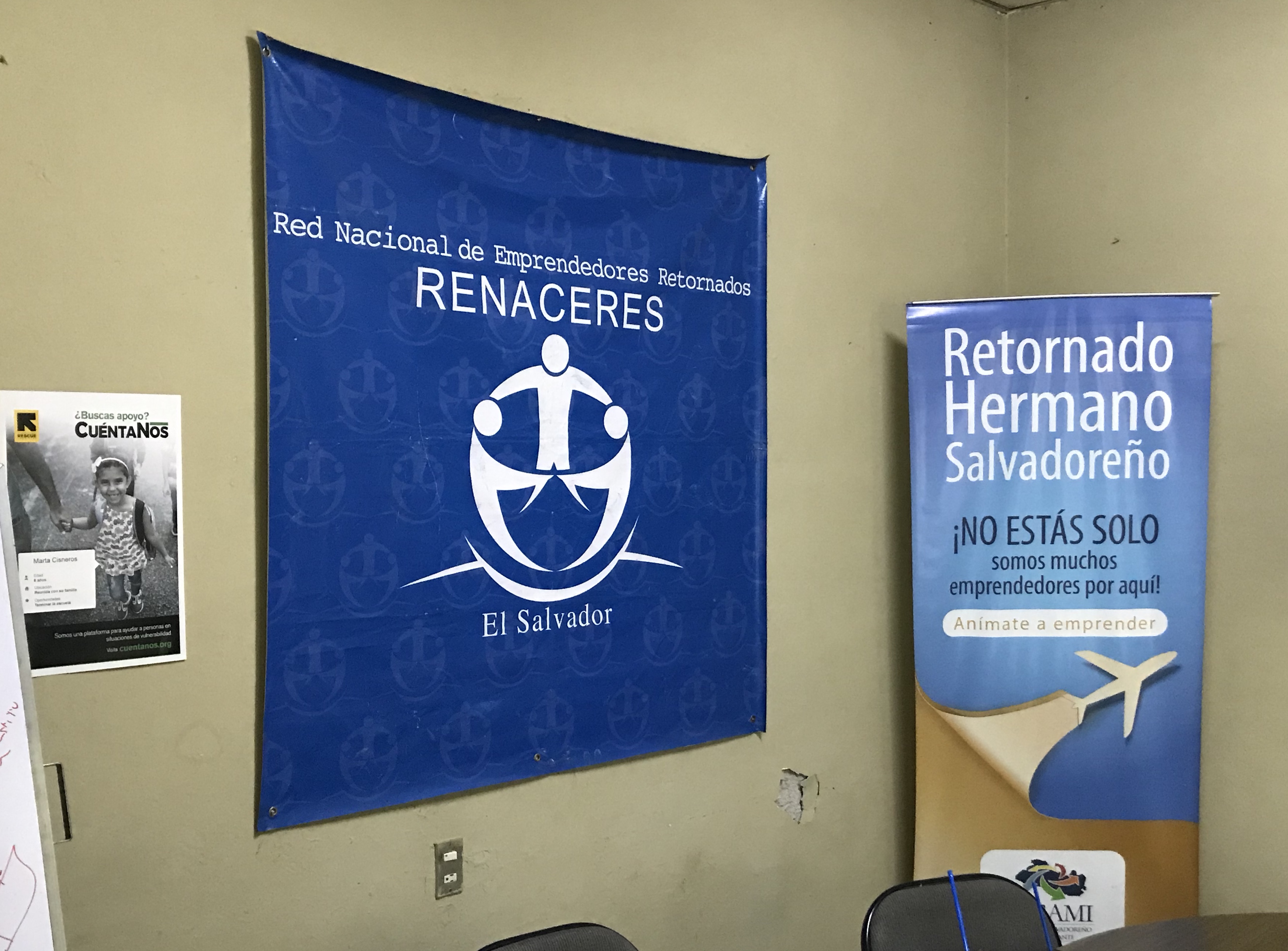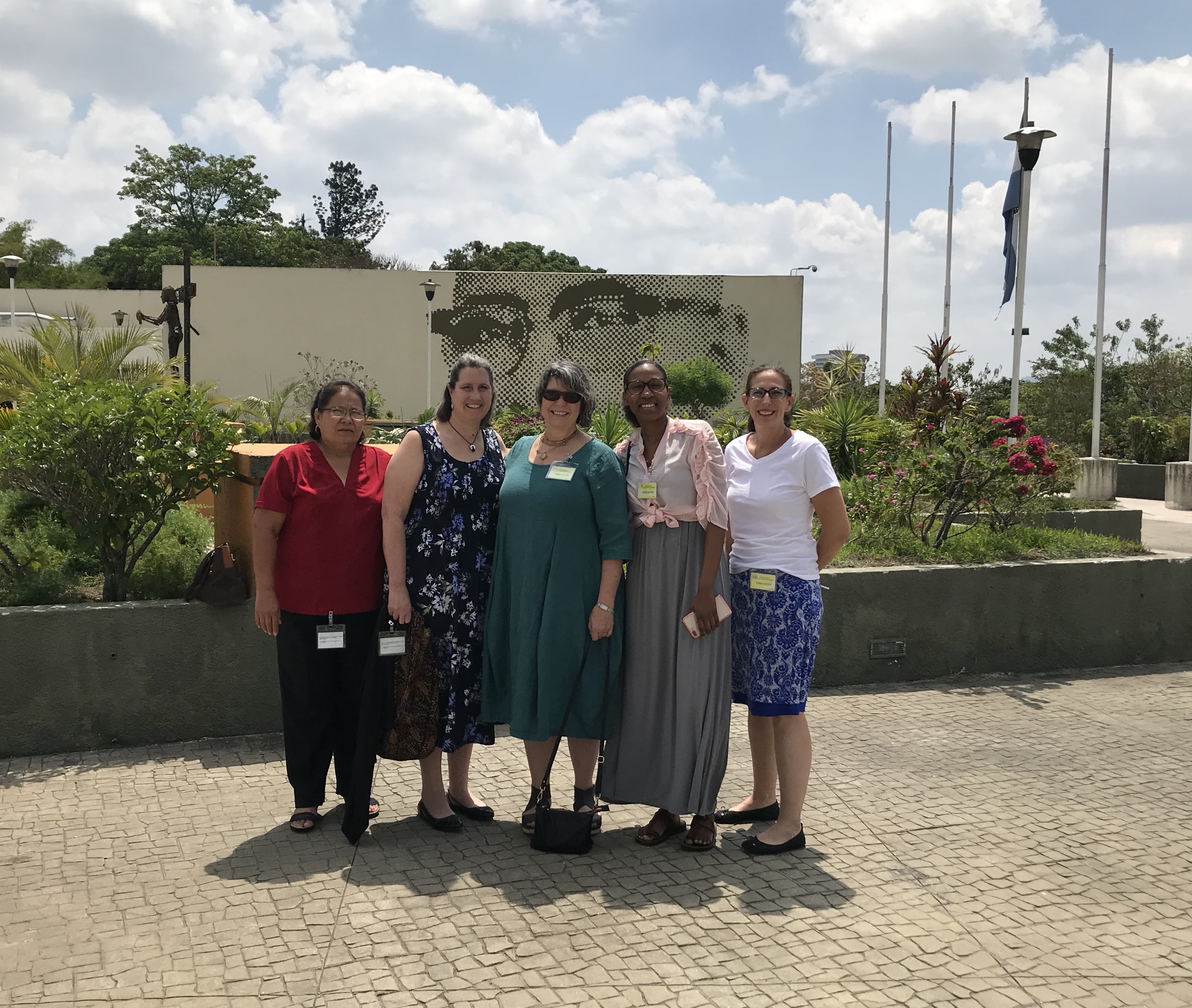RENACERES, Red Nacional de Emprendedores Retornados, is a network of Salvadorans who have been returned to El Salvador from the U.S. or Mexico. It is just one of the integral partnerships that the Reformed Calvinist Church of El Salvador (IRCES) has formed in launching a new ministry to returnees (a term they have chosen for themselves). This “mutual help” association was formed to create employment opportunities through the establishment of enterprises led by and for returnees. As Salvador, the President of RENACERES, shared during a recent PDA visit to El Salvador, their name (which means “rebirth”) is meant to be inspirational to those who are forcibly returned as well as a statement to the Salvadoran public meant to counter negative stereotypes of people who have been deported.
INSAMI, the Salvadoran Institute of the Migrant, is another key IRCES partner. INSAMI works with Salvadorans in the diaspora as well as those returning to El Salvador. In San Salvador, the organization has become a reception center, offering medical and psycho-social screenings, mentoring and referrals. The majority of the people who find their way to INSAMI have lived in the U.S. for more than 20 years.
After an initial intake, RENACERES members—familiar with life in the U.S., bilingual and bi-cultural, and most importantly, with an empathy born out of shared life experiences—serve as the first form of accompaniment for the recent returnees. INSAMI counselors and medical staff provide medical screenings, basic medical treatment, individual and group counseling, and referrals to specialists. Together, RENACERES and INSAMI see productivity, physical and mental health as interrelated to the well-being of any individual.
Reintegration is hard work. Starting over is all the more difficult because their return was involuntary (see the chart below for the total number of Salvadoran returnees over the past six years). Most returnees have left family members behind in the U.S. without a parent or wage earner. Finding work in El Salvador is hard (especially for older adults), hence the importance of entrepreneurship. For some, there is no longer any home in El Salvador to go back to; others experience unsuccessful family reunions, leaving them twice displaced. Deep disappointment, anger, depression, fear, and a sense of failure are all too common emotions. If these negative feelings are not addressed, they become paralyzing.

Reflecting on the struggle involved in regaining a sense of place and wholeness, INSAMI soon realized that spiritual health was another important component of reintegration and turned to the Reformed Church for their help. The Reformed Church will soon be providing 2 services: short term housing, and spiritual and emotional accompaniment. Church volunteers are being trained, basic provisions have been bought, and the beds are made for the Reformed Church to begin receiving their first guests.
We traveled home from El Salvador just as Holy Week was beginning, a fitting metaphor for the journey that these returnees face. It is a difficult path for many, one they did not choose, nor do they really recognize. But like those who traveled the road to Emmaus after the first Easter morning, they do not travel alone in their bewilderment and grief. As members and friends of the Reformed Church join them, there is hope and promise—even if they can’t see it at first. May God’s renewing Spirit be with the Reformed Church, their partners, and most especially the men and women returned to El Salvador.
……..
As we have said before, being informed about what is going on at the border—and what potentially can and needs to be done about it—is crucial to forming opinions about how you can get involved. The Genesis of Exodus is a good place to learn more about the situations in Central America fueling this crisis. Even those of us who have made ourselves familiar with the what and why often don’t understand how the US should respond; here are five ways in which the US should invest in the immigration system. And, if you want to see what is going on firsthand, you can organize an immersion/monitoring visit to the Texas Border through the PDA supported initiative, Courts & Ports.
Finally, have you started planning now for World Refugee Day? Your congregation can plan activites around it during June worship and celebrate it with local partners on June 20th. Welcome the stranger!


